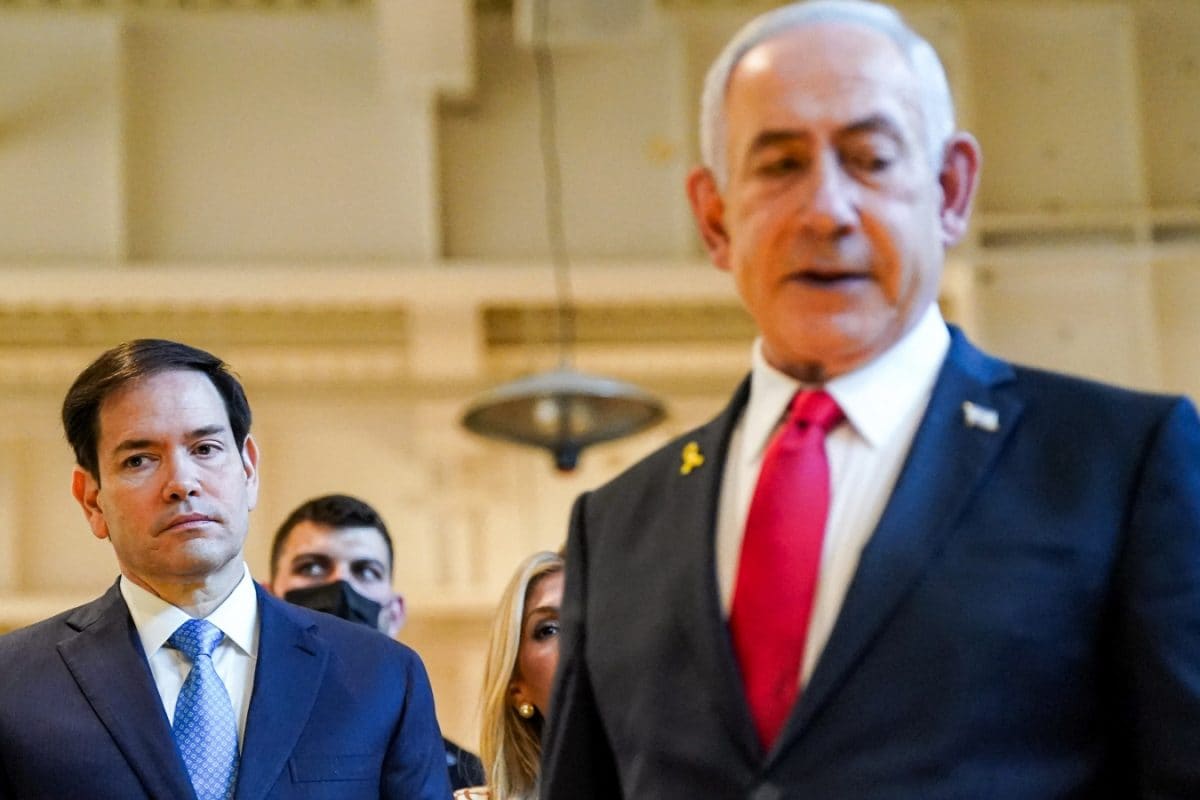World
Netanyahu: Gaza War Will Conclude After Hamas Disarmament

Israeli Prime Minister Benjamin Netanyahu stated on Saturday that the ongoing war in Gaza will only conclude following the completion of phase two of a ceasefire agreement, which includes the disarmament of Hamas. This announcement comes amid ongoing tensions and negotiations surrounding the conflict that has deeply affected the region.
Ceasefire Conditions and Hostage Situation
Netanyahu emphasized that the reopening of the Rafah crossing, which connects Egypt and Gaza, hinges on Hamas’ compliance with returning deceased hostages. The Prime Minister’s Office indicated that the crossing would remain closed “until further notice.” The statement noted, “The crossing’s opening will be considered based on the manner in which Hamas fulfills its part in returning the deceased hostages and implementing the agreed-upon framework.”
Earlier, both the World Health Organization and the Palestinian Embassy in Cairo had announced plans to reopen the Rafah crossing on Monday. The crossing has been closed since May 2024, halting the movement of Palestinians wishing to return from Egypt to Gaza. According to Reuters, the crossing had been shut to aid after Israeli forces secured the Gaza side in the previous year but saw a temporary reopening in early January 2025 during a short-lived ceasefire.
The tension surrounding hostages continues following Israel’s receipt of the remains of another hostage from Gaza. This transfer occurred as part of a handover by Hamas. The militant group has reportedly been using construction equipment to recover bodies from the destruction caused by the conflict, aiming to uphold the ceasefire agreement.
International Efforts and Humanitarian Aid
The transfer of hostages’ remains has emerged as a significant issue in the broader context of ceasefire negotiations. Alongside this, there are concerns regarding aid deliveries, the reopening of Gaza’s border crossings, and plans for reconstruction. These elements form part of a larger, internationally supported initiative aimed at resolving two years of conflict in the region.
While the focus has primarily been on the handover of hostages, Hamas has called on mediators to facilitate an increase in the flow of aid into Gaza. The group has urged for a swift reopening of the Rafah border crossing and immediate efforts to establish a committee of independent Palestinians to govern Gaza. They have also requested that Israeli troops continue their withdrawal from designated areas.
As discussions continue, the implications of these developments are significant for both the humanitarian situation in Gaza and the broader peace process in the region. The complexities of the ceasefire agreement and its enforcement reflect the challenges faced by both sides in negotiating a lasting resolution to the ongoing conflict.
-

 World5 months ago
World5 months agoSBI Announces QIP Floor Price at ₹811.05 Per Share
-

 Lifestyle5 months ago
Lifestyle5 months agoCept Unveils ₹3.1 Crore Urban Mobility Plan for Sustainable Growth
-

 Science4 months ago
Science4 months agoNew Blood Group Discovered in South Indian Woman at Rotary Centre
-

 World5 months ago
World5 months agoTorrential Rains Cause Flash Flooding in New York and New Jersey
-

 Top Stories5 months ago
Top Stories5 months agoKonkani Cultural Organisation to Host Pearl Jubilee in Abu Dhabi
-

 Sports4 months ago
Sports4 months agoBroad Advocates for Bowling Change Ahead of Final Test Against India
-

 Science5 months ago
Science5 months agoNothing Headphone 1 Review: A Bold Contender in Audio Design
-

 Top Stories5 months ago
Top Stories5 months agoAir India Crash Investigation Highlights Boeing Fuel Switch Concerns
-

 Business5 months ago
Business5 months agoIndian Stock Market Rebounds: Sensex and Nifty Rise After Four-Day Decline
-

 Sports4 months ago
Sports4 months agoCristian Totti Retires at 19: Pressure of Fame Takes Toll
-

 Politics5 months ago
Politics5 months agoAbandoned Doberman Finds New Home After Journey to Prague
-

 Top Stories5 months ago
Top Stories5 months agoPatna Bank Manager Abhishek Varun Found Dead in Well









